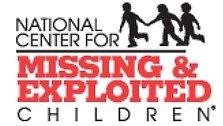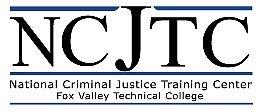Medical Training Academy/Legal Training Academy: November 2–4, 2017
This training, hosted by the Southern Regional Children’s Advocacy Center, will be held in Huntsville, AL. It is designed for healthcare providers (physicians, nurse practitioners, sexual assault nurse examiners, and physician assistants) who provide medical evaluations for suspected victims of child abuse as well as prosecutors or child protection attorneys who handle criminal or civil cases of child abuse. Registration information is available online.
Child Homicide Investigations: November 6–7, 2017
The National Criminal Justice Training Center will host this 2-day training in Las Vegas, NV. The training will focus on understanding and building relationships between the forensic pathologist, homicide investigator, and prosecutor to successfully investigate and prosecute child homicide cases. Information will be presented on autopsy protocols, forensic essentials, and the criticality of determining the cause and manner of death. Registration information is available online. 
Exploited Children Seminar for CEOs: November 6–7, 2017
This seminar, hosted by the National Center for Missing & Exploited Children, will take place in Alexandria, VA. Topics include the nature and scope of child exploitation, offender characteristics, investigative responses and challenges, and an overview of child sex trafficking. The course is designed specifically for chiefs and sheriffs. Registration information is available online.
American Evaluation Association 31st Annual Conference: November 6–11, 2017
The American Evaluation Association will conduct this conference in Washington, DC. Evaluation 2017 brings together evaluators, evaluation scholars, students, and evaluation users from around the world to share and learn from the successes of the international discipline and practice of evaluation. Presentations and learning formats include demonstrations, expert lectures, multipaper sessions, panels, roundtables, and skill-building workshops. Registration information is available online.
A Pathway to Wellness: Working at the Intersection of Domestic Violence and Substance Abuse: November 8–9, 2017
The National Criminal Justice Training Center will host this training in Mt. Pleasant, MI. Participants will explore the connection between domestic violence and substance abuse, common cause and effect myths about domestic violence, the impact on families, and the risks to drug-endangered children. They will also examine the need for a collaborative response and implementation of multidisciplinary teams. Registration information is available online.
Digital Evidence Investigations: November 13, 2017
The National Criminal Justice Training Center will host this training in Shawnee, OK. The training is designed to provide the first responder, investigator, and investigative supervisor in child abduction, exploitation, and child sex trafficking cases with information to improve their capacity and capabilities to conduct digital evidence preservation, collection, and analysis. Registration information is available online.
Reducing Racial and Ethnic Disparities in Juvenile Justice Certificate Program: November 14–17, 2017
Hosted by the Center for Juvenile Justice Reform at Georgetown University, this certificate program is an intensive training program designed to support local jurisdictions in their efforts to reduce racial and ethnic disparities in their juvenile justice systems. It will also focus on the relationship between disproportionality in the juvenile justice system and disparate treatment in other child-serving systems, including child welfare and education. Application guidelines are available online.
American Society of Criminology: November 15–18, 2017
The theme for the American Society of Criminology’s (ASC’s) 2017 meeting, to be held in Philadelphia, PA, is “Crime, Legitimacy, and Reform: 50 Years After the President’s Commission.” ASC is the largest professional criminological society in the world and includes practitioners, academicians, and students in the fields of criminal justice and criminology. Session topics include juvenile crime and the justice system, correlates of crime, victimology, policing, and perceptions and responses to crime and justice. Registration information is available online.
Enhancing Tribal and State Collaborations To Build Sustainable Public Safety Partnerships: November 28–29, 2017
This course, hosted by the Wyandotte Tribal & Municipal Police Department and cosponsored by the Bureau of Justice Assistance, is designed to be a proactive, comprehensive, training experience that fosters collaboration among tribal, state, federal, and local governments. The class will train and equip participants with the knowledge and skills necessary to identify existing tribal justice challenges so they can strengthen partnerships to more effectively implement criminal justice initiatives in their organizations. It will be held in Wyandotte, OK. Registration information is available online.
Missing Children Seminar for CEOs: December 4–5, 2017
This seminar, hosted by the National Center for Missing & Exploited Children, will be held in Alexandria, VA. Participants will learn about issues related to missing child cases, including effective policies and practices, technical assistance, training, and available resources. Topics include policies and practices for CEOs, strategy development, and survivor impact. This course is designed for chiefs, sheriffs, 911 directors, and clearinghouse managers. Registration information is available online.
Forensic Interviewing of Children Training: February 5–9, 2018
The National Children's Advocacy Center will host this 5-day training in Huntsville, AL. The training includes audience discussion, a child interview practicum, a review of recorded forensic interviews, experiential skill-building exercises, and participation in a mock court simulation. To facilitate continued skill development, each participant will receive a training manual, a recorded copy of his or her interview practicum, and access to additional online training materials. Registration information is available online.
Developing a Community Response for High-Risk Victims of Child Sex Trafficking and Exploitation: February 7–8, 2018
The National Criminal Justice Training Center will host this training in Raleigh, NC. Participants will learn to construct a multidisciplinary response to high-risk victim cases; quantify the problem of sex trafficking locally; and define the high-risk victim and the correlation and commonalities between the chronic runaway, repeat victims of sexual abuse, and children who are victimized through sex trafficking. Registration information is available online.
